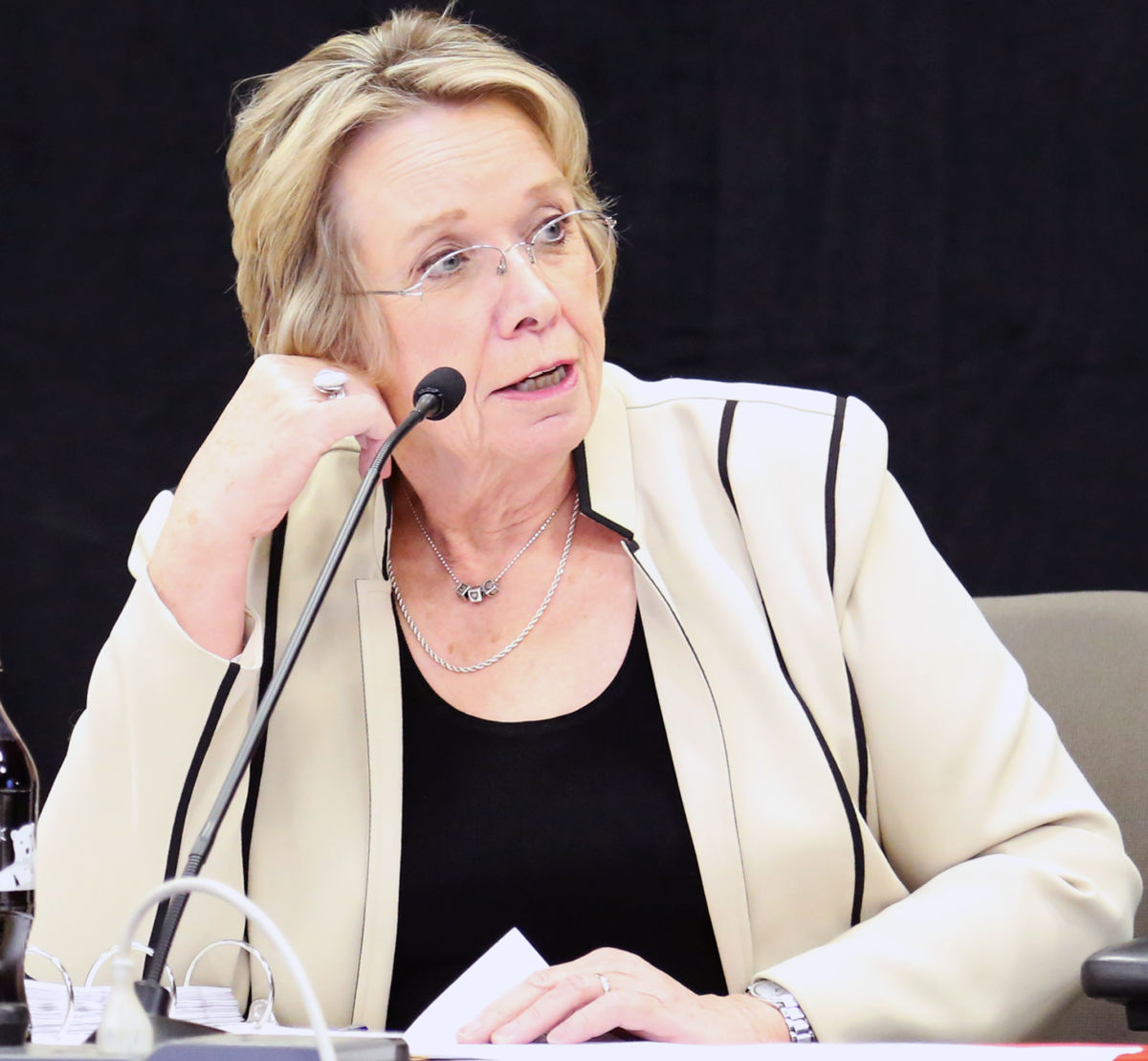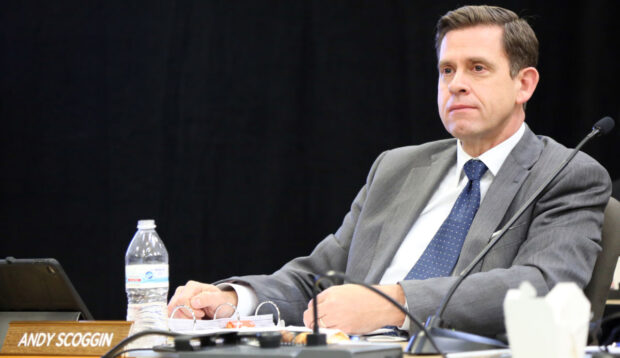Idaho’s college “go-on” rate remained flat in 2016, State Board of Education President Emma Atchley said Tuesday morning.
Still, the State Board believes Idaho’s college “direct admissions” program is beginning to pay off, Atchley told the House Education Committee Tuesday morning.

All told, 46 percent of high school graduates enrolled in college in the fall. That number is unchanged from 2015, when the college enrollment rate took a significant nosedive.
The flat 46 percent go-on rate comes after political, education and business leaders have spent years encouraging high school graduates to stay in school. The state has launched a variety of programs designed to encourage young adults to continue their education — in hopes of helping them compete in a changing workplace.
The State Board launched its “direct admissions” initiative in 2015. Eligible high school seniors received letters from the State Board in the fall, telling them they were qualified to enroll in some, or all, of the state’s colleges and universities.
Enrollment at state colleges and universities increased by 6.4 percent last fall, and Atchley said the direct enrollment initiative played a role. The 6.4 percent increase translates to a statewide enrollment increase of nearly 2,300 students.
The go-on numbers are different from — but connected to — the State Board’s “60 percent goal.” The State Board wants 60 percent of Idaho’s 25- to 34-year-olds to hold some kind of postsecondary degree.
As of 2015, only 42 percent of 25- to 34-year-olds held a degree — and the college enrollment numbers only cast further doubt on whether the state can hit its 60 percent threshold by the State Board’s 2020 target date.
The postsecondary graduation numbers have proven to be “a stubborn needle to move,” Atchley said Tuesday. However, reaching the goal is crucial for the state’s economy, and for the future of its young adults.
“The 60 percent goal is not just a trite campaign slogan,” she said.
Evaluations update
On another topic, Atchley said the State Board will release its audit of teacher evaluations data on Thursday — first at a board meeting in Boise, and then at a joint Senate-House education committee meeting Thursday afternoon.
The State Board report is “completely new and separate” from past evaluations reviews, Atchley told lawmakers. Educators have criticized a 2014-15 audit, conducted for the State Department of Education and released after a five-month delay.
Evaluations data concerns tie to the larger debate over the career ladder, a five-year plan to boost teacher salaries by $250 million. Citing concerns over inaccurate data collected by the SDE, the 2016 Legislature gave the State Board oversight of evaluations.
STEM school bill
House Education gave its unanimous support to a bill to designate “STEM schools” across Idaho.
House Bill 70 would allow schools to apply for and receive a state designation endorsing their course offerings in the “STEM” disciplines of science, technology, engineering and math.
The bill is modeled after similar designations in 11 states, said Rep. Gayann DeMordaunt, R-Eagle, the bill’s sponsor. It’s possible that 20 to 30 schools will seek the designation in the short term, although first-year numbers could be lower, said Angela Hemingway, executive director of Idaho’s STEM Action Center.
A variety of business and education leaders took turns speaking in favor of the bill, which now heads to the House floor.
State Board member’s confirmation hearing
State Board of Education member Andrew Scoggin enjoyed a brief, smooth confirmation hearing Tuesday afternoon in front of the Senate Education Committee.

Gov. Butch Otter appointed Scoggin to a vacancy on the State Board vacancy on Aug. 4. However, like all other State Board appointees, Scoggin’s appointment is subject to Senate confirmation.
Scoggin, who lives in the Boise area, is a 25-year veteran of the retail grocery business. He works for Albertsons Inc., serving as executive vice president of human resources, labor relations, public relations and government affairs.
His confirmation hearing lasted just 14 minutes, and lawmakers did not ask him any questions about divisive education issues such as teacher evaluations, high school graduation rates, the state’s stagnant go-on rates or the power clash between Superintendent of Public Instruction Sherri Ybarra and the rest of the State Board.
Instead, senators asked Scoggin what he enjoys about the job, who he listens to and whether he finds it most interesting to work on K-12 or higher education policy issues.
“There is a special place in my heart for elementary and secondary schools in the state,” Scoggin said.
Senate Education did not vote on Scoggin’s appointment Tuesday, but may do so as early as Wednesday afternoon.
Although senators avoided controversial education topics, Sen. Bob Nonini, R-Coeur d’Alene, asked Scoggin if he is a sports fan. Nonini then asked a followup question attempting to determine whether Scoggin prefers to root for teams from Oakland or San Francisco.
In fairness, the in-depth sports questions prompted an interesting response from Scoggin, who said he tutored Hall of Fame quarterback Steve Young for a couple of years while he was in law school.
Disclosure: Idaho Education News is funded by a grant from the J.A. and Kathryn Albertson Family Foundation.
Idaho Ed News reporter Clark Corbin contributed to this report.
